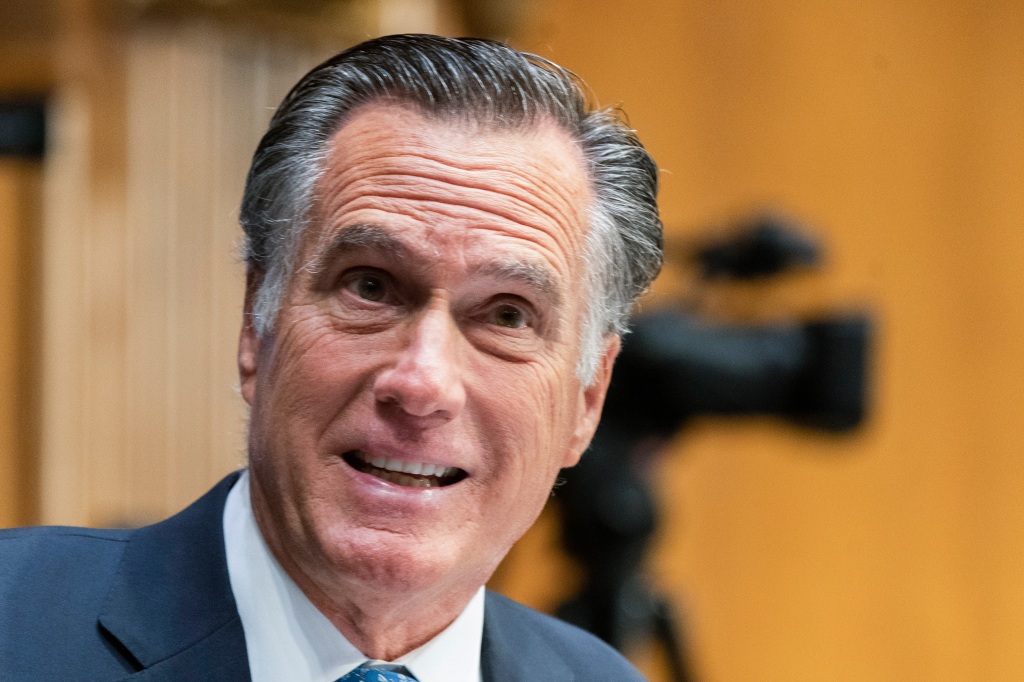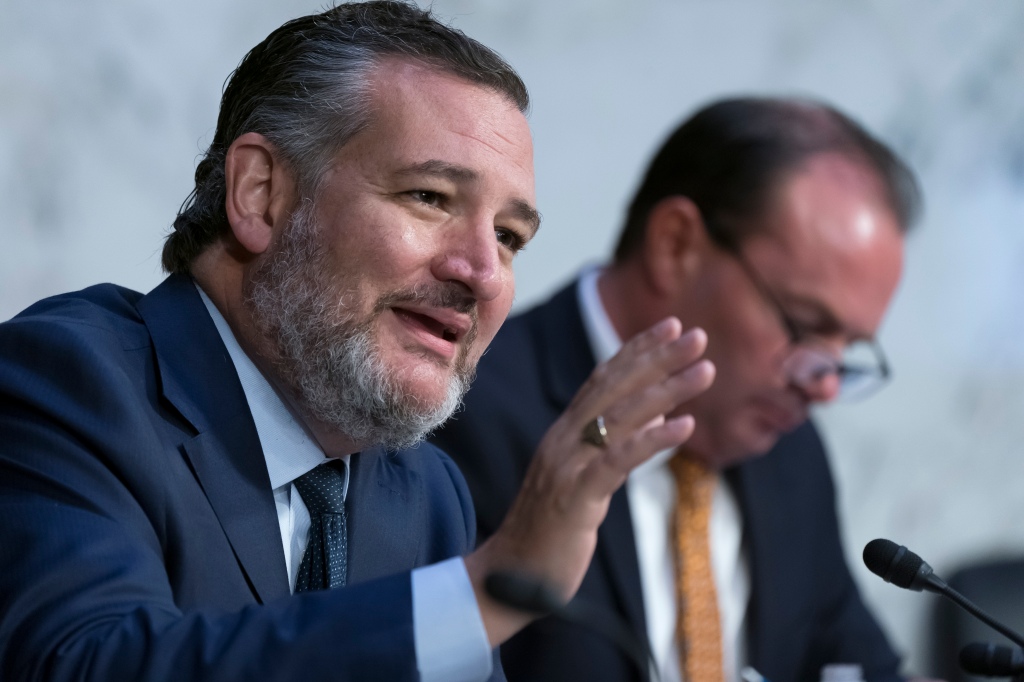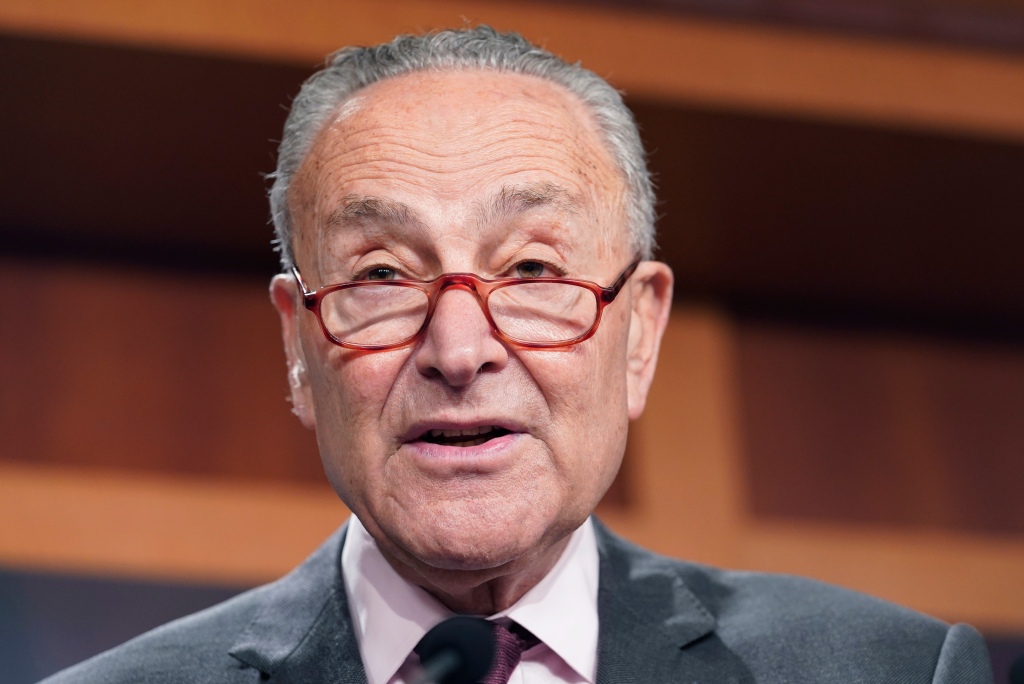More On: Inflation Reduction Act
Promoting the Energy Transition
Former IRS agents explain why the department has guns and more than 3 million rounds of ammunition
After the Senate passes the $740 billion energy and health care bill, top Republicans criticize the Democrats
With Harris's vote, Senate Democrats pass a $740 billion energy and health care bill
Senate Democrats were slammed by top Republicans for trying to pass a $740 billion package that would spend money on energy and health care while raising taxes on corporations. The chair of the Republicans warned that the midterm elections would hurt President Biden's party.
In a statement, Republican National Committee Chair Ronna McDaniel said, "Democrats will pay the price in November for raising taxes on families during a recession."
The Inflation Reduction Act was passed by the Senate 51-50 on Sunday, with Vice President Kamala Harris's vote being the deciding one. No Republicans supported the bill, and as it moves to the House, where Democrats have a slim majority, it was quickly criticized.
The bill would put close to $400 billion into environmental projects and keep subsidies for 13 million people who want to buy health insurance but can't afford it. It will also limit the amount that seniors on Medicare will have to pay for their own drugs to $2,000 a year.
Some of the $700 billion in new revenue would come from putting a minimum corporate tax rate of 15% on very wealthy companies that make more than $1 billion in profits every year.

In a statement, Senate Minority Leader Mitch McConnell said that Democratic policies have "attacked the American middle class economically."
McConnell said, "Democrats have shown over and over that they don't care about the needs of middle-class families" (R-KY). "They've been proving that for 18 months. They just spent a lot of money to prove it once more."
Sen. Mitt Romney said that Democrats contributed to inflation when they passed the $1.9 trillion American Rescue Plan last year and "returned to their same tired playbook" of raising taxes, spending more money, and growing the size of government.

“Rather than listening to the American people who are suffering from inflation, Democrats have voted for a liberal wish list,” Romney (R-UT) said, stating higher taxes on companies will be passed on to customers.
“The American people, who are drowning in debt and inflation, needed a life preserver and Democrats gave them a bag of hammers.”
Sen. Ted Cruz (R-TX) criticized the bill as a "giveaway to the Democrats' radical leftist base at the expense of middle-class Americans." He also said that it would raise prices and taxes for most Americans, even those who make less than $400,000 a year.
In a video he posted on Twitter, Sen. John Kennedy (R-LA) was direct.
He said, "I think it takes a special kind of stupid to raise taxes during a recession and rising prices." "That's called stagflation, and it's happening right now because of what President Biden is doing."
Sen. Lisa Murkowski (R-AK) said she voted against the bill because it adds billions of dollars in new spending and taxes "at a time when our economy can least afford it," and because it was written and passed without any transparency.

“Even floor debate – with amendment votes starting just before midnight on Saturday, and continuing through Sunday afternoon – was designed to avoid public awareness and scrutiny,” she said. “While I don’t oppose everything within the bill, there is no doubt in my mind, based on both substance and process, that the Senate should not have passed it.”
Democrats praised the passage after a vote-a-rama of proposed amendments Saturday into Sunday with Biden saying in a statement Senate Democrats “sided with American families over special interests.”
“I ran for President promising to make government work for working families again, and that is what this bill does — period,” he said.
Senate Majority Leader Chuck Schumer (D-NY) also lauded the bill.
“The Senate is making history,” he said. “I am confident the Inflation Reduction Act will endure as one of the defining legislative feats of the 21st century.”












